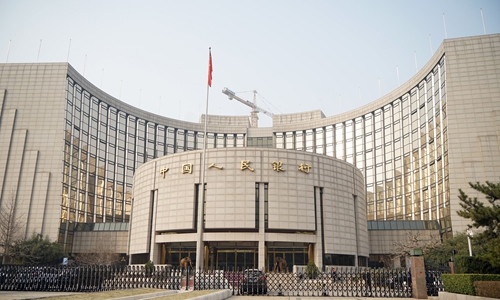HOME >> SOURCE
China’s lending benchmark LPR unchanged in January
Source:Global Times Published: 2020/1/20 11:55:40

The headquarters of the People's Bank of China, March 13, 2018 . (Xinhua/Cai Yang)
China’s new lending benchmark loan prime rate (LPR) is unchanged in January, suggesting the country hopes to avoid an overly loose monetary policy while remaining cautious about non-performing loans amid an economic slowdown, experts told the Global Times on Monday.
The one-year LPR now stands at 4.15 percent while the five-year LPR is at 4.8 percent, both figures unchanged from December, according to a statement published on Monday by the People’s Bank of China (PBC), China’s central bank.
It is the second month that the LPR rate has remained unaltered. In November, the PBC lowered one-year and five-year LPRs by 5 basis points.
An earlier Reuters poll showed that participants were almost evenly divided over whether China would lower the benchmark lending rate on Monday or keep it steady.
The PBC has reformed the LPR mechanism to better reflect market changes in its latest move to lower borrowing costs to support the real economy. Under the revamped mechanism, LPRs released every month are based on the central bank's open market operations rates instead of benchmark interest rates.
Xi Junyang, a professor at the Shanghai University of Finance and Economics, said the LPR did not edge down as the government had already injected liquidity into the market, and China wants to observe the effects of this move before it takes further measures to loosen monetary policy.
In January, the PBC released capital of around 2 trillion yuan ($291.8 billion) into the market via one reserve requirement ratio cut and several reverse repurchase agreements.
The PBC pumped 250 billion yuan into the financial system via reverse repos on Monday, and 200 billion yuan on Sunday, to replenish market liquidity for the Spring Festival holidays.
Xi also said that the LPR level is stable at a time when domestic banks are cautious about lending over fears of potential non-performing loans amid the general economic slowdown.
Posted in: ECONOMY